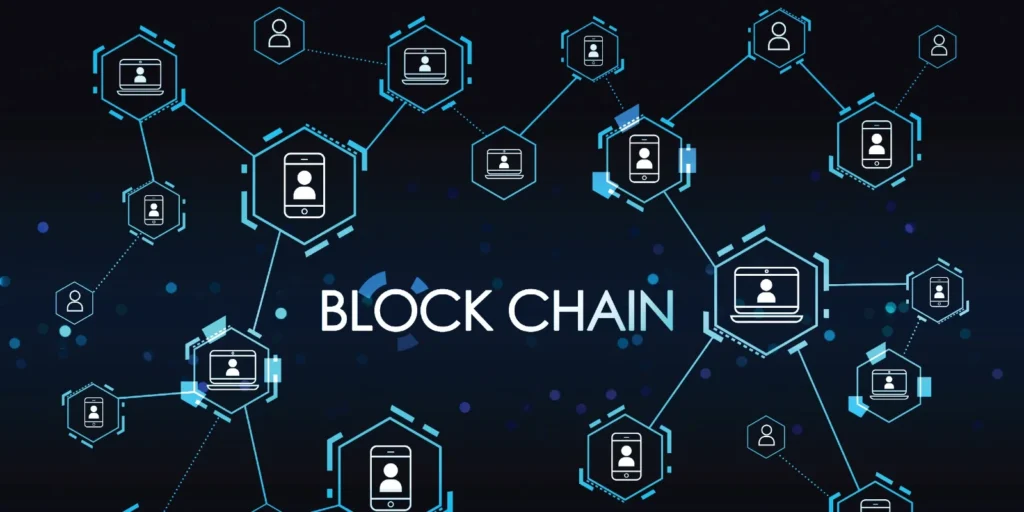Blockchain technology, with its promise of decentralized, transparent, and secure transactions, has been heralded as a revolutionary development in various industries.
As with any groundbreaking innovation, it brings with it a host of ethical considerations that society must address.
Privacy Concerns
Stefan Matthews notes that one of the primary ethical issues associated with blockchain technology is privacy. While the chain’s transparency is one of its key features, it can also be a double-edged sword. The permanent and immutable nature of chain records means that personal data can be stored indefinitely, potentially exposing individuals to privacy risks. Although pseudonymity is often a feature of blockchain transactions, it does not guarantee complete anonymity, raising concerns about data protection and the right to be forgotten.
Security and Fraud Prevention

Source: cdn.britannica.com
Blockchain is often touted for its security benefits, yet it is not immune to vulnerabilities. For instance, the prevalence of smart contract bugs and the potential for 51% attacks pose significant risks. The ethical dilemma here lies in balancing the security advantages of blockchain with the potential for exploitation by malicious actors. Ensuring that chain systems are as secure as possible without compromising user trust is a critical challenge.
Environmental Impact
The environmental footprint of blockchain, particularly cryptocurrencies like Bitcoin, is a growing concern. The energy-intensive process of mining and maintaining chain networks consumes vast amounts of electricity, contributing to environmental degradation. This raises ethical questions about the sustainability of chain technology and its alignment with global efforts to combat climate change.
Economic Inequality

Source: insidetelecom.com
While blockchain has the potential to democratize access to financial services, it can also exacerbate economic inequality. The high cost of entry for mining and the concentration of wealth among early adopters can lead to a digital divide. This inequality extends to the technological and financial resources required to participate in blockchain networks, potentially sidelining marginalized communities.
Regulatory Challenges
Blockchain operates in a gray area of regulation, presenting ethical challenges related to compliance and legal standards. The decentralized nature of chain makes it difficult for traditional regulatory frameworks to apply, leading to potential issues with anti-money laundering (AML) and know-your-customer (KYC) regulations. The ethical imperative is to develop regulatory approaches that protect consumers without stifling innovation.
Impact on Employment
The automation and decentralization enabled by blockchain could significantly impact employment, particularly in industries reliant on intermediaries, such as finance and real estate. While the chain can create new job opportunities, it can also render certain roles obsolete. The ethical challenge lies in managing this transition in a way that supports workers and promotes equitable economic growth.
Accessibility and Inclusion

Source: e00-marca.uecdn.es
Blockchain’s potential to provide financial services to the unbanked and underbanked populations is often highlighted as a significant benefit. However, the technical complexity of the chain can be a barrier to widespread adoption. Ensuring that blockchain solutions are accessible to all segments of society, regardless of technological proficiency, is an ethical imperative.
Transparency vs. Confidentiality
The tension between transparency and confidentiality is a central ethical issue in chain technology. While transparency is crucial for accountability and trust, there are scenarios where confidentiality is equally important, such as in medical records or sensitive business transactions. Striking the right balance is essential to uphold ethical standards in various applications of chain.
Governance and Decentralization

Source: www.blueoceanacademy.com
The decentralized nature of blockchain poses unique challenges in terms of governance. Without a central authority, decision-making processes can become fragmented and inefficient. Ethical considerations must address how power and control are distributed within chain networks, ensuring that governance structures are fair, inclusive, and effective.
Trust and Verification
At its core, blockchain technology aims to build trust through a system of decentralized verification. However, the ethical question is whether this trust is truly justified. Trusting the code and the network assumes that all participants act in good faith, but the potential for fraud and manipulation still exists. Ethical considerations must focus on developing robust verification mechanisms that reinforce trust without compromising ethical principles.
The Role of Ethics in Blockchain Development
As blockchain technology advances, developers and stakeholders must integrate ethical considerations into the design and implementation of chain systems. This involves not only addressing immediate concerns but also anticipating potential future ethical dilemmas. A proactive approach can help mitigate risks and ensure that chain technology serves the broader interests of society.
Ethical Frameworks and Guidelines

Source: theicttrends.com
Developing ethical frameworks and guidelines is essential for guiding the responsible use of blockchain technology. These frameworks should encompass principles such as fairness, transparency, accountability, and inclusivity. By adhering to these ethical standards, developers can create chain solutions that respect individual rights and promote social good.
Stakeholder Collaboration
Addressing the ethical implications of blockchain requires collaboration among various stakeholders, including technologists, policymakers, ethicists, and the public. Open dialogue and cooperation can lead to the development of comprehensive policies and regulations that balance innovation with ethical considerations. Engaging diverse perspectives ensures that the solutions developed are equitable and reflect the values of all stakeholders.
Case Studies: Ethical Dilemmas in Blockchain
Analyzing real-world case studies can provide valuable insights into the ethical challenges associated with blockchain technology. For example, the use of chain in supply chain management can improve transparency and reduce fraud, but it can also raise privacy concerns for suppliers. Similarly, blockchain-based voting systems can enhance electoral integrity but may pose risks related to voter anonymity and security. By examining these case studies, stakeholders can better understand the ethical nuances and develop strategies to address them.
Education and Awareness
Raising awareness and educating the public about the ethical implications of blockchain technology is crucial. As chain becomes more integrated into everyday life, individuals must be informed about its potential benefits and risks. Education initiatives can empower people to make informed decisions and advocate for ethical practices in blockchain applications.
The Future of Chain Ethics
The ethical landscape of blockchain technology is continually evolving. As new applications and innovations emerge, so too will new ethical challenges. It is imperative that the blockchain community remains vigilant and adaptable, constantly reassessing and refining ethical guidelines to keep pace with technological advancements. By prioritizing ethics, chain can fulfill its potential to drive positive change and contribute to a more just and equitable society.





















